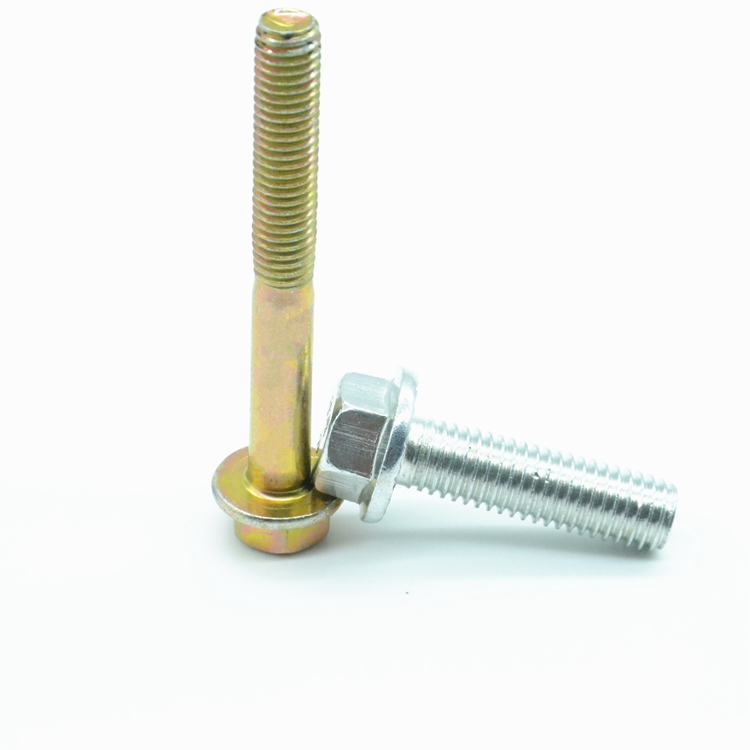Galvanized Steel Stud Bolt for Enhanced Durability and Corrosion Resistance in Construction Projects
Aug . 17, 2024 16:50 Back to list
Galvanized Steel Stud Bolt for Enhanced Durability and Corrosion Resistance in Construction Projects
Understanding Galvanized Stud Bolts Features, Applications, and Benefits
Galvanized stud bolts are essential components widely used in various industrial applications. These bolts, typically made of steel and coated with a layer of zinc to prevent corrosion, play a crucial role in ensuring structural integrity and durability in many settings. This article explores the features, applications, and benefits of galvanized stud bolts, highlighting their importance in modern construction and manufacturing.
Features of Galvanized Stud Bolts
The primary characteristic of galvanized stud bolts is their corrosion resistance. The galvanization process involves coating the steel fastener with a layer of zinc, which acts as a barrier against moisture and environmental elements that can cause rust and deterioration. This is particularly important in outdoor applications or environments where exposure to harsh chemicals is a concern.
Galvanized stud bolts also boast impressive tensile strength, making them suitable for high-stress applications. The manufacturing process often includes heat treatment, which enhances the mechanical properties of the steel, ensuring that these bolts can withstand significant loads without deforming.
Additionally, galvanized stud bolts come in various sizes and grades, allowing engineers and construction professionals to select the appropriate type for specific applications. Their standardization means they can easily replace older, corroded fasteners, ensuring compatibility with existing structures.
Applications of Galvanized Stud Bolts
Galvanized stud bolts are versatile and can be found in a multitude of industries. One of the most common applications is in construction, where they are used to secure structural elements like beams, columns, and trusses. Their strength and durability make them a preferred choice for supporting heavy loads in buildings and bridges.
galvanized stud bolt

In the automotive industry, galvanized stud bolts are often used to assemble vehicle components, ensuring that parts remain securely attached even under vibration and stress. The corrosion resistance offered by the galvanized coating also prolongs the lifespan of these fasteners, reducing the need for frequent maintenance.
The energy sector utilizes galvanized stud bolts in wind turbines and solar panel installations, where they are exposed to outdoor elements. Their resistance to corrosion ensures that these renewable energy installations remain safe and functional over time. Additionally, in the oil and gas industry, these bolts are vital in securing pipelines and other equipment where exposure to harsh environments is inevitable.
Benefits of Using Galvanized Stud Bolts
The use of galvanized stud bolts offers numerous advantages over non-galvanized alternatives. The primary benefit, of course, is their superior resistance to corrosion. By preventing rust, galvanized bolts significantly extend the lifespan of structures and equipment, leading to cost savings in maintenance and replacement.
Furthermore, their strength and reliability contribute to the overall safety and stability of constructions. In critical applications such as bridges or high-rise buildings, using robust and durable fasteners is non-negotiable.
Another notable benefit is the environmental aspect of using galvanized stud bolts. Since they require less frequent replacement, they contribute to reduced material waste and lower environmental impact over time. Moreover, zinc is a readily recyclable material, further enhancing the sustainability of galvanized fasteners.
Conclusion
In conclusion, galvanized stud bolts are indispensable components in today’s industrial landscape. Their unique features, diverse applications, and numerous benefits make them a go-to choice for professionals in various fields. By understanding the importance of these fasteners, stakeholders can better appreciate their role in enhancing the durability and safety of structures and equipment, ensuring that they stand the test of time. Whether in construction, automotive, or energy sectors, galvanized stud bolts continue to prove their worth as reliable and effective fasteners.
Latest news
-
Premium Wire Bolts Suppliers | Durable & Reliable Fasteners
NewsAug.18,2025
-
Leading Metric Wood Screw Companies & Manufacturers
NewsAug.17,2025
-
Top Wire Bolts Suppliers - Quality & Durable Fasteners
NewsAug.15,2025
-
Trusted Wire Bolts Company | Quality Fasteners Supplier
NewsAug.14,2025
-
Reliable Wire Bolts Suppliers & Manufacturers for Global Needs
NewsAug.13,2025
-
High-Quality Bolts for Lawn Mower Handle Supplier
NewsAug.12,2025
